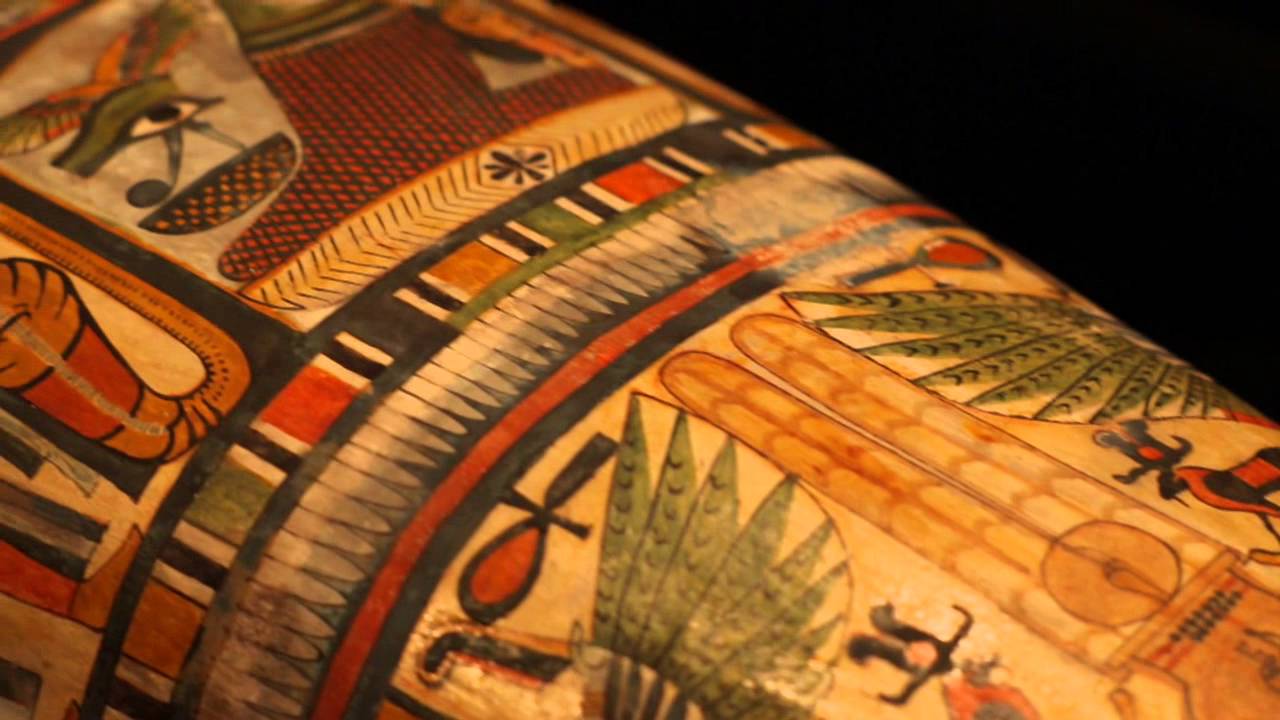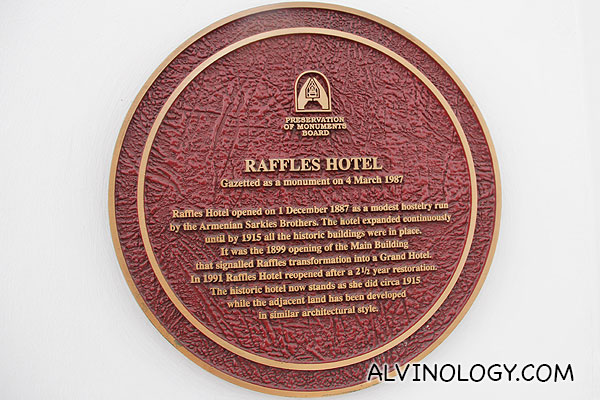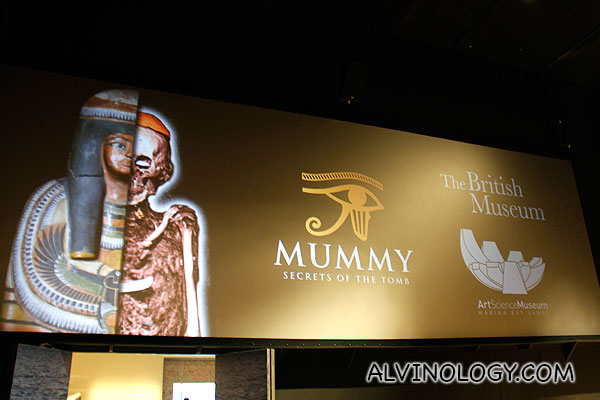
The ArtScience Museum at Marina Bay Sands is currently showcasing Mummy: Secrets of the Tomb – an exhibition featuring six real mummies (two human and two animals) from the time of ancient Egypt:
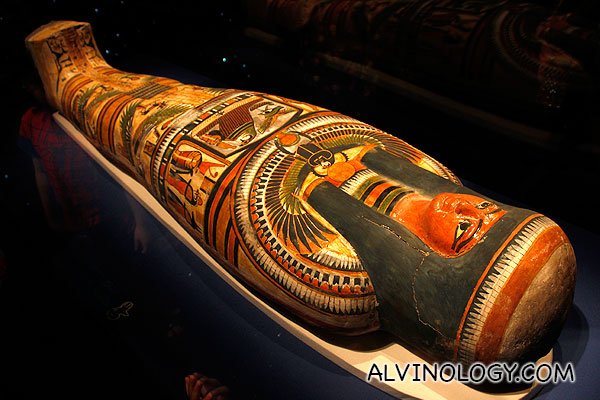
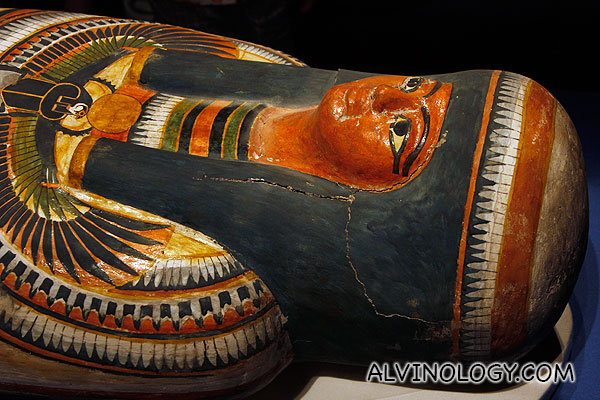
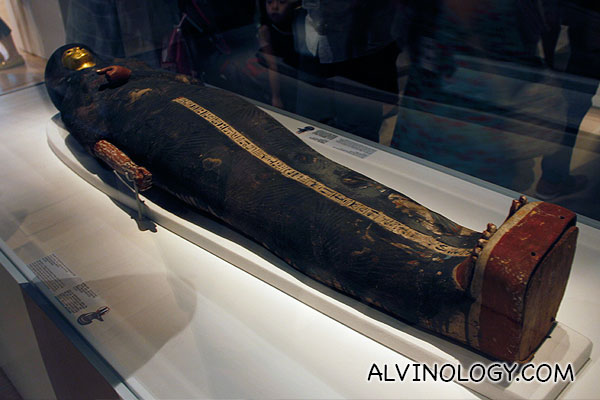
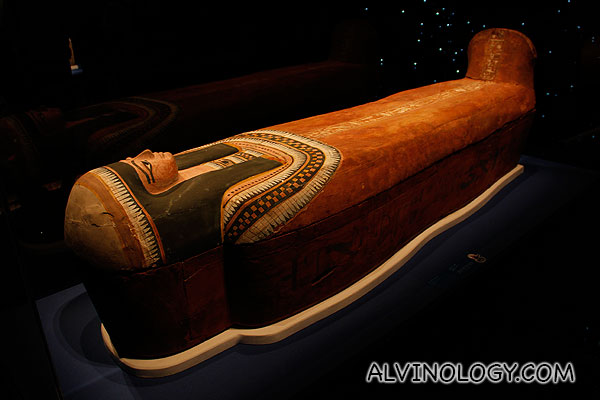
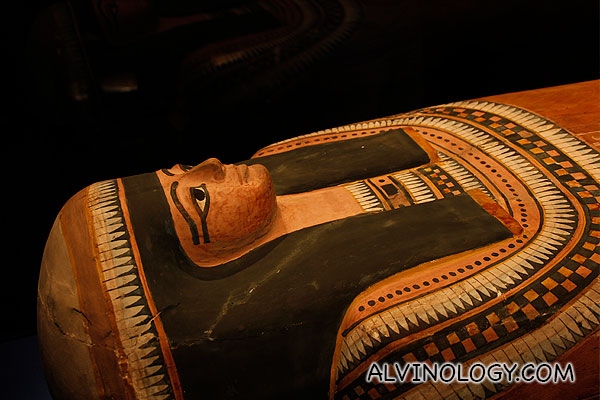
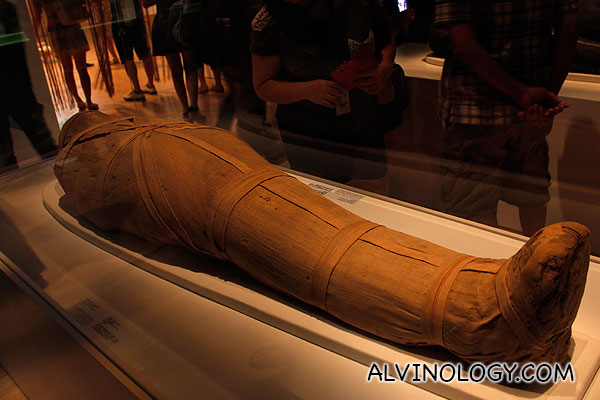
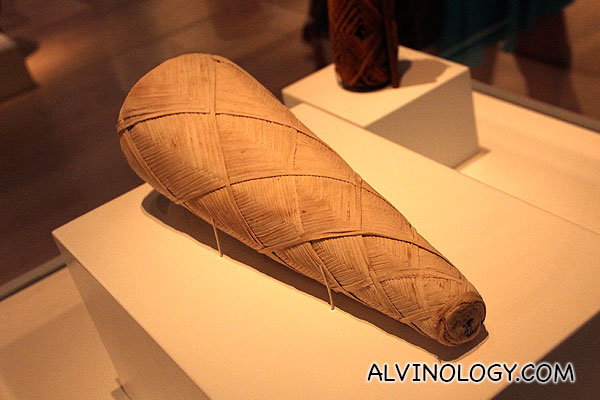
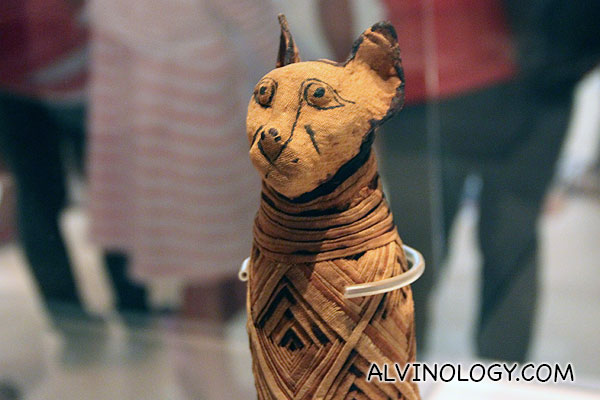
The exhibition will be there from 27 April all the way till 4 November 2013:
[youtube url=”http://www.youtube.com/watch?v=aYi_Bso11nI”]
This is the first time the exhibition has travelled to Southeast Asia, revealing the 3000 year-old mystery of Egyptian burial practices and mummification process.
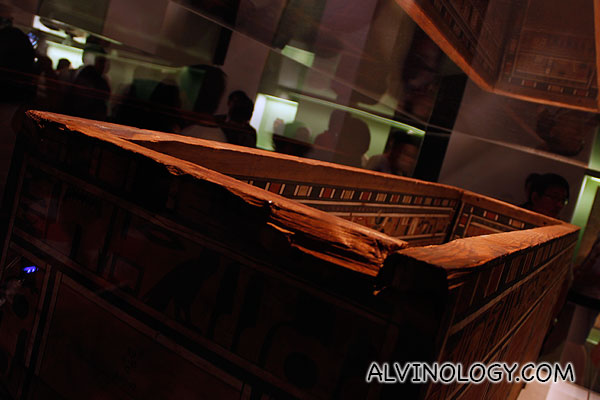
Rachel and I brought our two year son, Asher to the exhibition for a tour.
Exploration of the exhibition starts with a 3D film, detailing the “virtual unwrapping” of the 3,000-year old mummy of Egyptian temple priest Nesperennub – whose original cartonnage coffin has never been opened – to unveil the story of his life and death, complete with a digital reconstruction of his facial appearance.
*Note: The 3D film shown in conjunction with Mummy: Secrets of the Tomb has been approved for general public viewing. ArtScience Museum, however, does not recommend this film for children under 6 years of age. Parents and guardians are reminded that children visiting the exhibition (including the theatre) must be accompanied by an adult at all times. Asher sat through the film with Rachel explaining what he saw on screen to him. He did not get nightmares after that, but was intrigued by the mummies.
The exhibition boasts over 100 historical artefacts, including six exceptionally preserved mummies from the extensive and famed Egyptian collection of the British Museum.
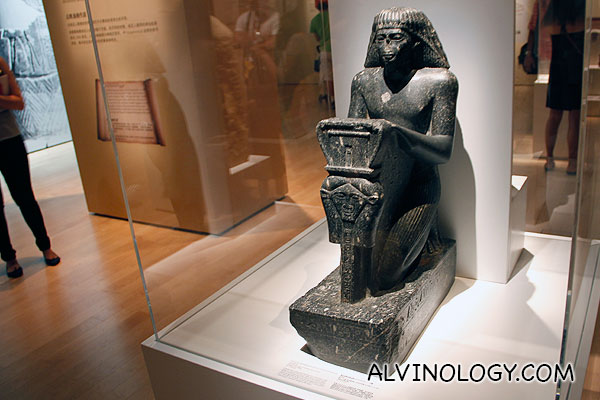
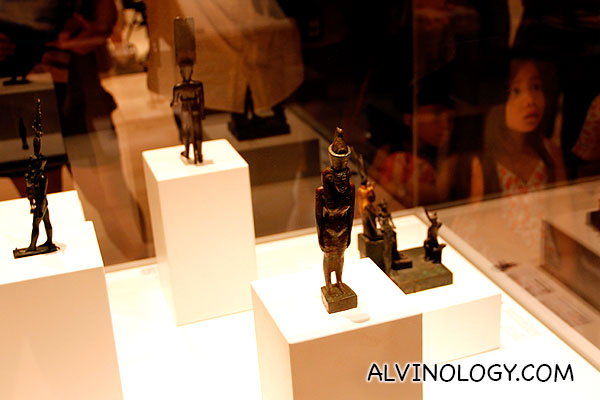
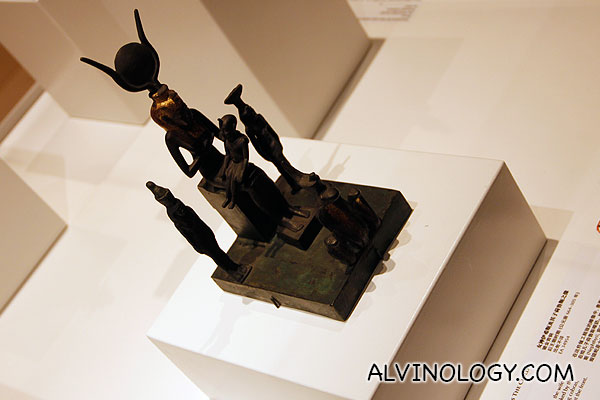
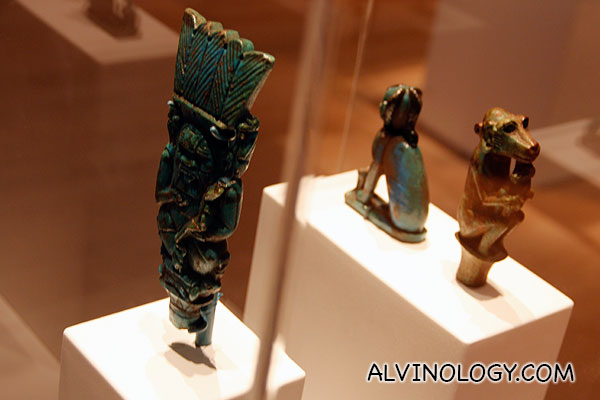
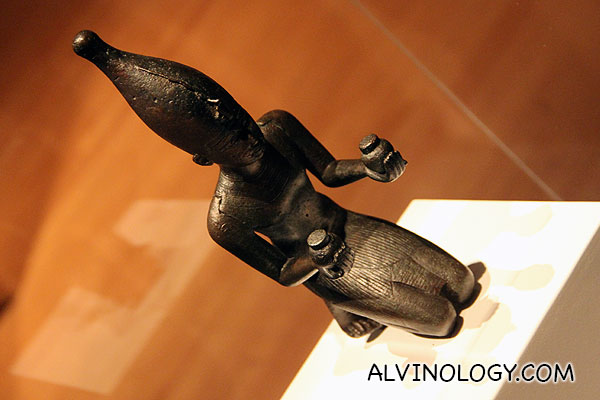
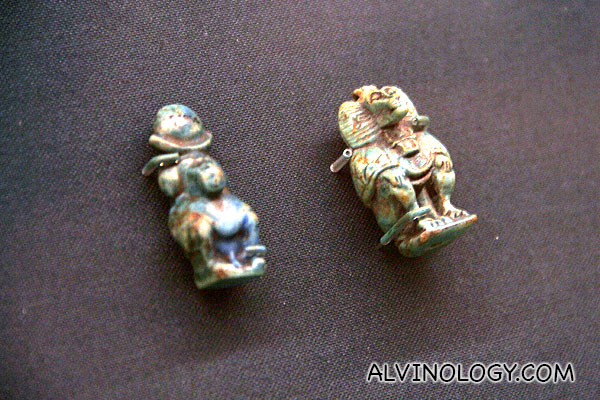
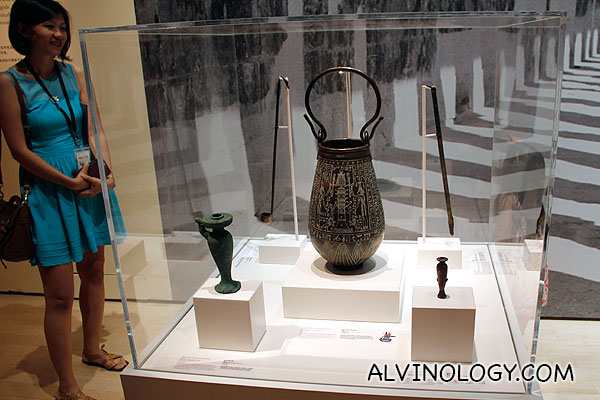
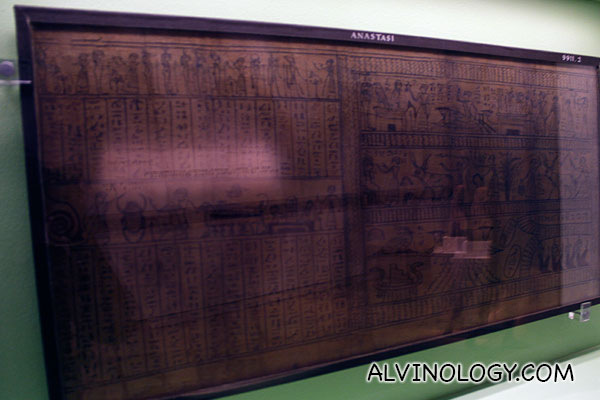
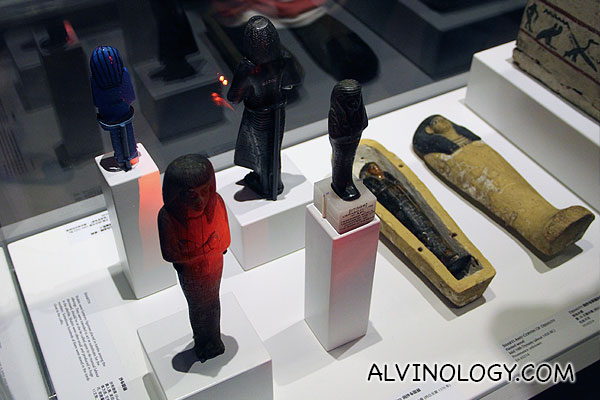
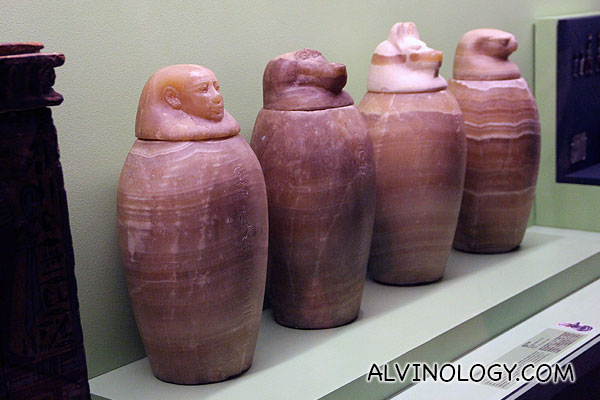

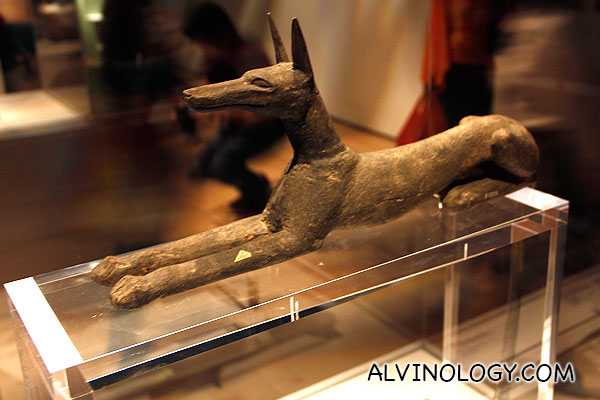
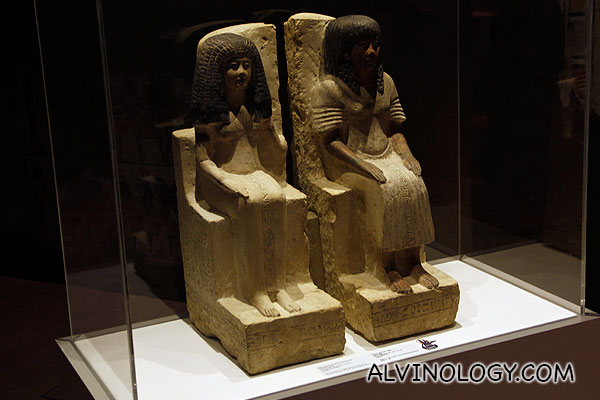
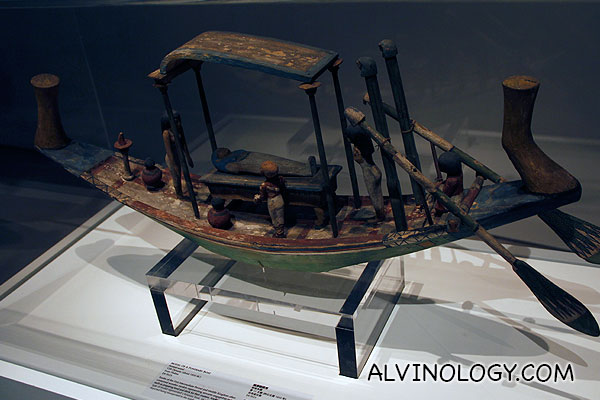
The various exhibition chambers are themed after the mysterious rituals of life, death and the afterlife in ancient Egypt.
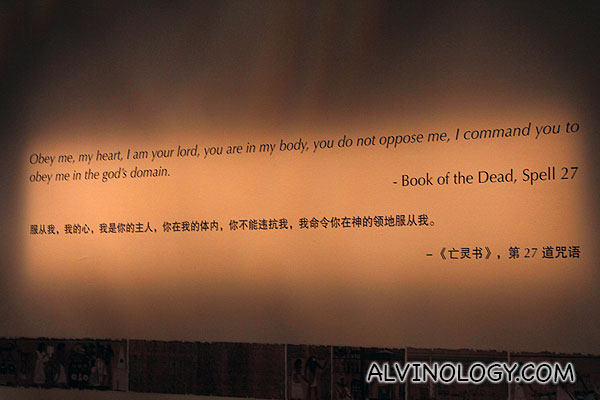
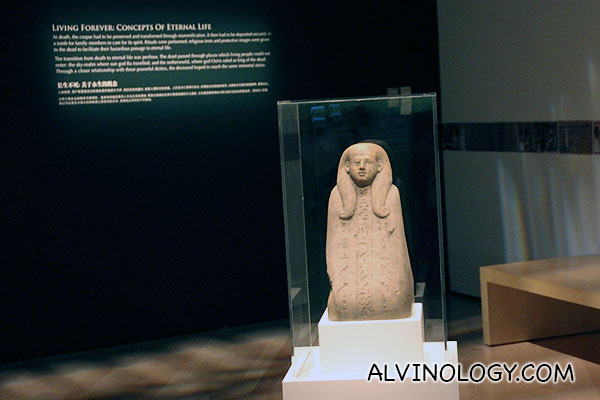
Elaborate mummification and burial was only available to the very rich or powerful people in ancient Egypt. Who is Nesperennub? Why was he accorded with such an elaborate after-death ritual? Via The British Museum’s website:
Nesperennub lived nearly three thousand years ago in Thebes. Thebes was one of the greatest cities in ancient Egypt and was full of temples and grand palaces. Nesperennub himself worked as a priest in the greatest of these temples, Karnak. He was also a fan-bearer to the King, so was an important man.
Nesperennub’s wooden coffin has his face painted on the outside. He wears a wig, and his headband and collar are made of lotus petals. The hieroglyphs down the centre are a prayer asking for ‘life, prosperity and health’ for Nesperennub. Inside the coffin a goddess holds her arms open to protect his body.
Nesperennub was alive around 800 BC and died aged approximately forty years. His skull shows a small unexplained hole above the left eye, which might indicate an illness which could have proved fatal. After death Nesperennub would have had his internal organs removed, except for the heart, before being embalmed with resin. Next the corpse was decorated with pieces of jewellery – the X-rays show rings on both hands – as well as amulets. The body was wrapped, then placed inside its painted cartonnage case, which was in turn put inside a wooden coffin. The text on the cartonnage case reveals that Nesperennub and his father worked as priests in the great religious complex of Karnak.
The 3D images of Nesperennub show that, very unusually, he was mummified with a shallow, irregular-shaped bowl on his head. This does not belong to any known ritual aspect of embalming and was probably part of the embalmers’ working equipment. Perhaps during the embalming process the bowl was placed on the head to catch surplus resin. This may then have hardened unexpectedly quickly, cementing the bowl firmly to the skull. Damage to the skin at the back of the head may have been caused by attempts to remove it. The embalmers may then have decided to carry on with the wrapping of the body, hoping that their mistake would pass unnoticed – which it did for nearly three thousand years.
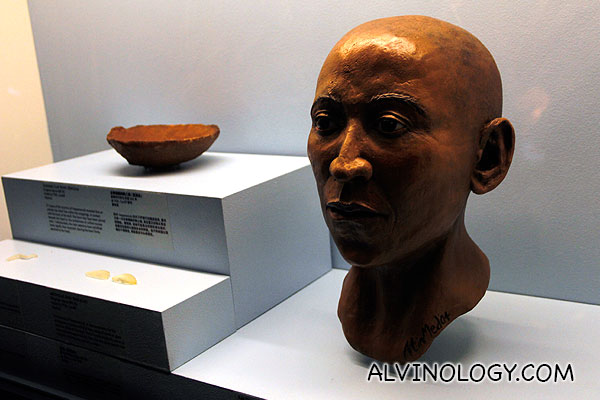
I was intrigued by how modern science was able to reconstruct and tell the life story of Nesperennub, just by examining his mummified remains and coffin alone.
Asher apparently held vivid memories of the exhibition. Even till today, he will alert us about “mummy-sighting” whenever he sees an exhibition poster.
Mummy: Secrets of the Tomb is presented through the collaboration of The British Museum and ArtScience Museum. For more details or to buy tickets, visit the ArtScience Museum official website. 🙂





